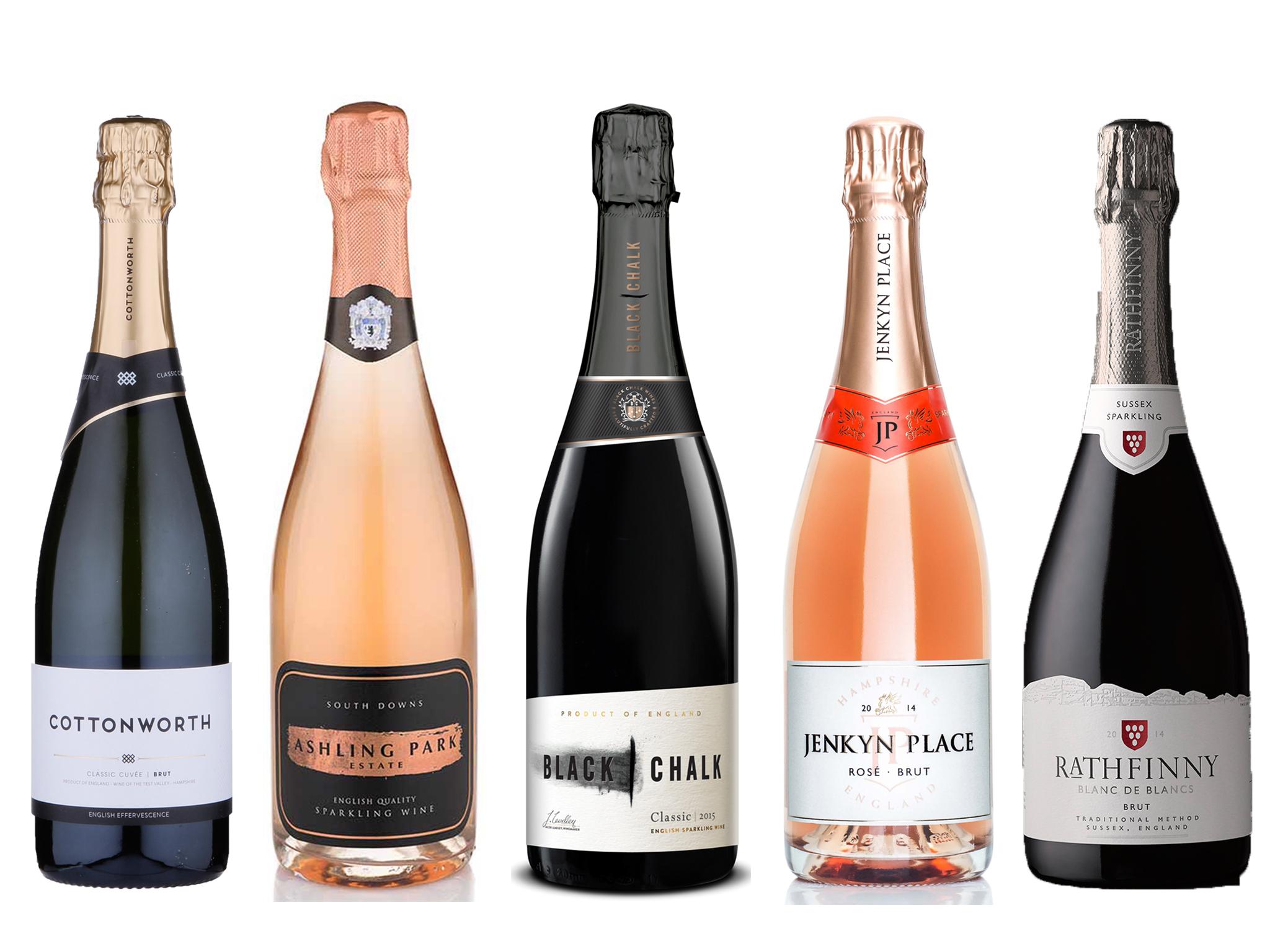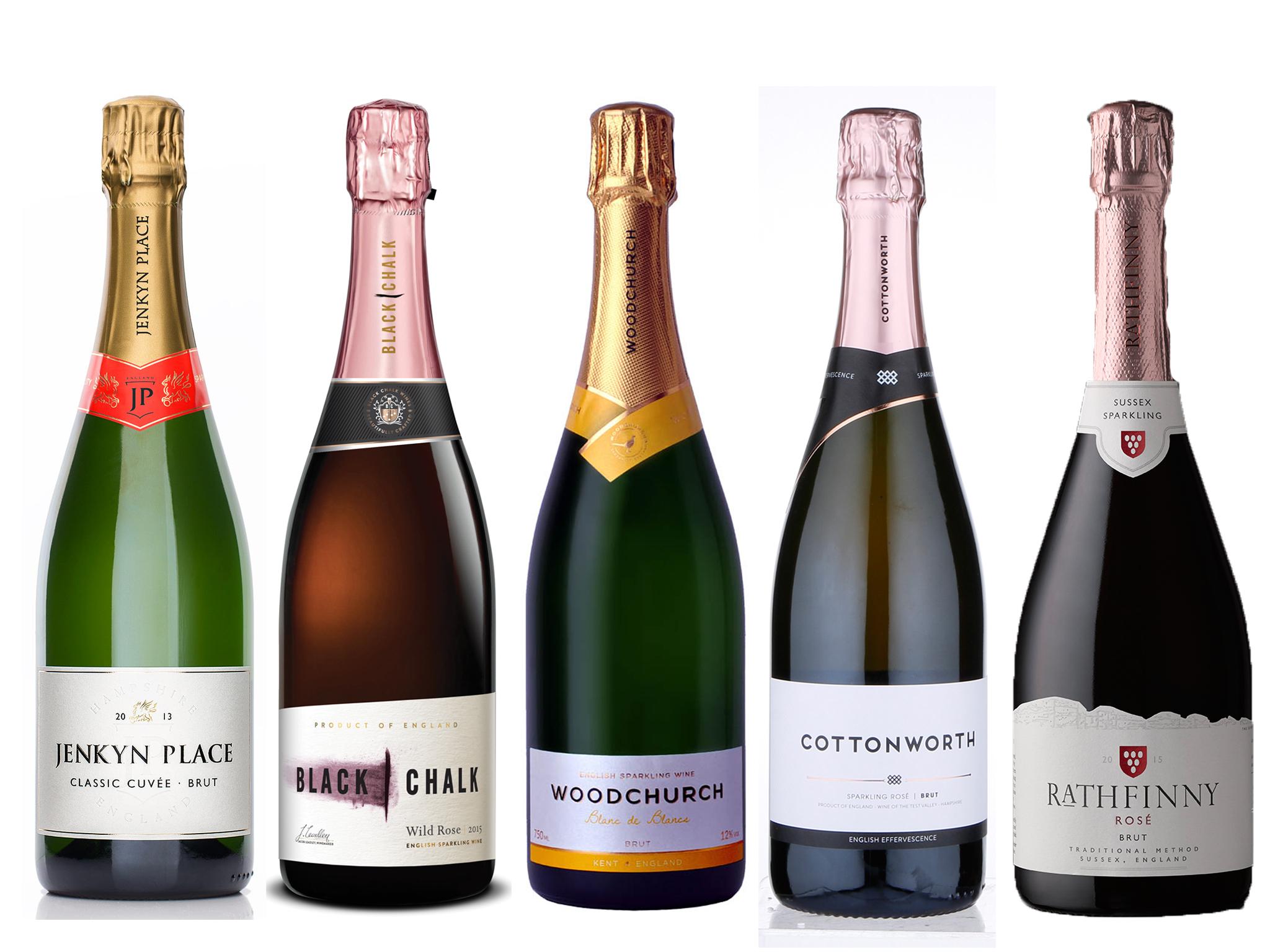The Independent's journalism is supported by our readers. When you purchase through links on our site, we may earn commission.
Wines of the week: 16 sparklers for English Wine Week 2018
Terry Kirby celebrates the home-grown versions of champagne, all of which are wonderful aperitifs and mostly work brilliantly with seafood and all kinds of canapes

Your support helps us to tell the story
From reproductive rights to climate change to Big Tech, The Independent is on the ground when the story is developing. Whether it's investigating the financials of Elon Musk's pro-Trump PAC or producing our latest documentary, 'The A Word', which shines a light on the American women fighting for reproductive rights, we know how important it is to parse out the facts from the messaging.
At such a critical moment in US history, we need reporters on the ground. Your donation allows us to keep sending journalists to speak to both sides of the story.
The Independent is trusted by Americans across the entire political spectrum. And unlike many other quality news outlets, we choose not to lock Americans out of our reporting and analysis with paywalls. We believe quality journalism should be available to everyone, paid for by those who can afford it.
Your support makes all the difference.This coming week is English Wine Week with lots of events designed to celebrate the delights of, well, English wine. As this column has long championed English sparkling, it is great to hear that more and more people realise there is a fantastic home-grown version of champagne: the number of bottles released rose by 64 per cent in 2017 and high street retailers such as Marks and Spencer and Majestic are reporting increased sales. It is now a £130m industry.
Pioneers such as Nyetimber and Ridgeview in Sussex or Camel Valley in Cornwall are well established, their wines served at government functions and big occasions everywhere, while the competition awards just keep racking up for them and for some of the dozens of new players that have followed suit, as the fruits of investments up to a decade ago in vineyards finally reach the market. Buying or planting and nurturing a vineyard is a lengthy and costly business and then you have to wait a minimum three years for the wine to mature before its ready for sale. And, because the vineyards of southern England are mostly located on the same kind of chalky slopes as in Champagne, the grapes are, mostly the same: chardonnay, pinot noir and pinot meunier. Big French players such as Tattinger and Pommery are investing in the area.
Among the smaller new players, standards are high as wine makers have figured out what works and what doesn’t for both local conditions and the market and as the core of knowledge and expertise steadily expands, much of which can be connected through Plumpton College near Lewes, Britain’s main source of wine training and some influential wine makers...
Few of the wines below are available nationally, but all can be bought via their websites, many of which also list independent stockists and restaurants which offer their wines. And, to save repetition, all are wonderful aperitifs and mostly work brilliantly with seafood and all kinds of canapes.
Among the new influencers is Jacob Leadley, who gave up his job in the City in 2009 to retrain as a winemaker at Plumpton and became part of an award-winning team at Hattingly Valley wines, in Alresford, Hampshire, which makes both its own wines and those of other vineyard only operations. While remaining at Hattingly, he has now launched his own label, Black Chalk, with two exceptional wines: the ethereal Black Chalk Classic (£35 Blackchalkwine.co.uk) and the intensely red fruit-inflected Black Chalk Wild Rose (£40 Blackchalkwine.co.uk) both with higher proportions of pinot meunier in the blend than is normal. Black Chalk doesn’t grow its own grapes, but sources them from Hampshire vineyards.

At Jenkyn Place, also in Hampshire, owner Simon Bladon, an entrepreneur originally from Yorkshire, was inspired by accidentally tasting Nyetimber wines [he thought it was a champagne] to start his own vineyard in 2004, although full production was only possible in 2010 and 2013, with the wines made by Dermot Segrue, the original winemaker at Nyetimber, who also produces his own award-winning wines at Wiston Estate in Sussex. It was worth the wait for Jenkyn Place: the Classic Cuvee 2013 is all clean purity and floral notes with a steely backbone and the pinot noir-dominated Rose 2014 packed with red fruit flavours; both have a core of refreshing minerality derived from the chalk soils. Both are available via their website Jenkynplace.com priced at £29.50 and £35 respectively. Waitrose Cellar also still has their earlier 2010 Brut (£24.99 Waitrosecellar.com)
Hampshire has become a standout area for new vineyards – at Cottonworth, near Stockbridge, the first vines were planted on his parent’s farm in 2005 by Hugh Liddell, who already had experience of the wine trade in Burgundy and later trained at Plumpton. This week, their excellent Classic Cuvee NV (£28 Cottonworth.co.uk) and Rose 2014 (£29.95 Cottonworth.co.uk) both also made at Hattingly, took gold medals in the 2018 International Wine Challenge awards, just two of the total of 128 medals for English wines.
Another family estate turned into winemaking is at Ashling Park on the South Downs, where Gail Gardener, a marketing expert who also studied at Plumpton, recently planted 10 acres of vines but could not wait for the vines to bear fruit, so bought another vineyard nearby and has engaged Sugrue to make the wines, already getting rave reviews. The elegant, pinot noir-dominated Classic Cuvee (£27.50 Ashlingpark.co.uk) and Rose (£28.50 Ashlingpark.co.uk) are fantastic additions to the market.
One of the few organic sparklers is also produced in East Sussex, on the Oxney Organic Estate, where the vines share the land with arable and livestock farming, all run by owners Paul Dobson and Kristin Syltevik, with wines made on their custom built winery by Plumpton-trained – again! – winemaker Ben Smith. The 21 acres of vines were planted between 2012 and 2014 and their first wines released at the end of 2016. Their Classic Cuvee and Rose, priced at £35 and £25 respectively are both available on their website Oxneyestate.com.
Over in Kent, another new player is Woodchurch, based in the village of the same name where Graham Barbour, another ex-City refugee – something of a theme here – and his wife Donna, who both trained at Plumpton, set up their vineyard in 2010 and released their first wines, which are made at nearby Bluebell Vineyards, in 2015. Last year their wines were taken up by Connoisseuer Estates, one of the biggest wine importers and distributors in the UK. Their wines, a chardonnay-dominated Classic Cuvee, as well as a Rose and a Blanc des Blancs which have begun to notch up awards, can also be bought from their website Woodchurchwine.co.uk priced between £26.95 and £28.95 and, like all the wines above, come highly recommended.
Finally, there is Rathfinny, the estate on the South Downs near Alfriston, bought in 2010 by former hedge fund owner Mark Driver and his wife Sarah, who planted 185 acres of vines (with another 215 on the way by 2021) and built a state-of-the-art winery and recruited expert winemakers, making it almost certainly the biggest investment of its kind in English wine making. After eight years, their long-awaited first sparklers, a refreshingly floral, orchard fruits-loaded Blanc de Blancs 2014 and a raspberry and strawberry-flavoured Rose 2015 finally go on sale this Friday, 1 June, priced £37 and £35 respectively, available from various independent retailers and their website Rathfinnyestate.com. Both are predictably gorgeous, elegant, well-made and embody the best of English sparkling, something rooted in the soils and landscapes of these southern shires. Do they begin to justify Driver’s ambition to create “some of the world’s best sparkling wine” or their considerable investment? Time will tell. But one thing is certain – they have a lot of competition.
And that’s just the new sparklers: the new English still wines will have to wait for another day...
Join our commenting forum
Join thought-provoking conversations, follow other Independent readers and see their replies
Comments